The Meaning of an End: Gaza’s Forever War
We know Israel’s pattern - ceasefire, then betrayal, then war again. Will Gaza witness a real ceasefire, or just another pause before the next bomb?
After a hellish two years of genocide and relentless bombardment, killing, and destruction, we are, for the first time, beginning to feel a glimmer of hope. For two years, we lived a nightmare that seemed endless. Now, there’s a strange medley of feelings which range from joy to relief to sorrow - and a disbelief that we are indeed officially now genocide survivors. The ceasefire has been announced, and Gaza has not been totally erased – it will survive, and Gazans’ lives will be saved.
This genocide began in October, and it also ended in October. It seems that October will remain a harsh reminder of this genocide. It feels unreal that this endless terror has finally come to an end. After months of fearing that Israel’s tanks would reach the heart of Gaza City, after hearing the bulldozers and drones creep closer to my own neighbourhood, Al-Rimal, the sudden stillness feels like a miracle. It feels like surviving a hell that was never going to end. I can’t help wondering why this ceasefire came just before the end - before they reached us, before Gaza City was completely erased, and before they annihilated and slaughtered all the people of Gaza.
But beneath the cheers and celebrations, there is fear. We’ve lived this moment before. We know Israel’s pattern - ceasefire, then betrayal, then war again. They sign, they pause, and they reload. Many here whisper the same thought: “Will Gaza witness a real ceasefire, or just another pause before the next bomb?” Even while we cling to hope, the uncertainty eats away at us. We have seen how peace becomes another Israeli tactic in this genocide. In fact, we are already seeing proof of that grim cycle. Since the ceasefire was declared on October 10, Israeli forces have violated it repeatedly — carrying out drone strikes, artillery fire, and incursions across Gaza. Nearly a hundred Palestinians have been killed since then, including in the latest drone attack last Saturday night in the Nuseirat refugee camp, which killed one person and wounded four others. Even in “peace,” Israel fires and Gaza continues to bleed.
This time, though, it feels different for me. During the last ceasefire, I was forcibly displaced to the south by the Israeli army, living in a tent for a whole year. I remember feeling like a stranger in my own homeland — exiled from my own city. Then I experienced the return from the south to the north of Gaza on foot, carrying the burden of displacement, loss, and exhaustion. This time, I remained in Gaza City despite Israel’s offensive last month. And this ceasefire, I am at home with my family, and I feel the weight and the miracle of survival more deeply than ever.
The New War
But the hardest truth we all carry is this: even when the war ends, the real struggle begins. Gaza has been eviscerated — not only physically but also psychologically and intellectually. There are no schools, no universities, no hospitals, and no mosques left intact. Our education system has collapsed; our health sector is bleeding out. Our youth — once full of energy, ambition, and purpose — now wander through rubble with nothing to study, nowhere to work, and no future to plan. The future is nowhere to be found in Gaza.
This is the first time I have ever seen people returning to their homes twice in the same year. The scenes of joy and relief and ‘takbirs’ back in January 2025, when hundreds of thousands returned to the north, are repeated. But beneath every cheer lies exhaustion, grief, and the haunting knowledge that surviving is only the first step in a much longer fight. Wars never end in Gaza; they only end when the last person is gone. The people of Gaza never learned the language of ending.
The end of this genocide is not, therefore, a return to life. It is the beginning of a new kind of war. The kind that only those who have survived genocide can truly understand. A war that we must fight against the trauma we now have tattooed on our souls. It is a war against forgetting, against silence, against the normalisation of our pain. Now is the moment to give grief its time and recognise what we have lost. It is the time to grieve our beloved martyrs that have been killed, despite their memories still being alive in us. It is the time to learn how to live again in a place where everything that made life possible has been destroyed. It is the time to realise that life is still worth living after so much death. It is the time to learn how to live again.
We will soon understand the depth of our losses. The ones we buried without saying goodbye. The friends who vanished under the rubble. The professors, doctors, and journalists — all killed. The buildings can be rebuilt, perhaps, but who will rebuild the souls that have cracked open under two years of relentless death? Mercy to the souls of our martyrs, whom we wish could witness this ceasefire with us. Mercy to Anas Al-Sharif and all my colleagues who were killed while documenting this genocide and spreading the truth.
Even as the sound of war fades, another kind of silence begins — the silence of aftermath. Maybe this time, the silence will last forever. The psychological wounds run deeper into our lives. We are haunted by sounds, by images, and by memories that will not fade. Even in silence, we hear the drones that have never left us our whole lives. Even in daylight, we see flashes of the nights we survived. There are children who no longer walk, mothers who wake screaming, and fathers who sit for hours staring at nothing after seeing their homes lost and their children killed. We will spend our whole life trying to understand what we’ve lost — not just the people, but the people we were before the genocide began.
Who Will Help?
I wonder who will help us forget the sounds of heavy airstrikes, artillery shells, carpet bombing, quadcopters, drones, explosions, screams, and ambulance sirens? Who will help us forget the recurring scenes of displacement, the starvation scenes, the long lines for water, the blood, the limbs, the destruction, the tanks and soldiers, the funerals, the coffins, the pieces and remnants of people, the brutal massacres, the charred bodies, the burning of people alive, the killing of infants in their mothers’ wombs, the assassination of doctors and journalists, the ruins, the firewood, the evacuation orders, and many other scenes of devastation? These realities seeped into the very essence of our being, forging part of our identity and shaping us. The bombs may stop, but the stench of the genocide will remain suffused in the very air we breathe. It is too difficult to fully describe the feeling you get from seeing your city streets stained with blood, the remains of its inhabitants scattered across the rubble.
The first true morning after this genocide is like waking up to an unrecognisable tranquillity, the sounds of birds singing, something so quotidian but lost in the fog of mass death we have lived for two years. To not be exposed to the threats of bombing feels like returning to a previous life, normal things like having your breakfast with your family, reading your favourite book, sipping your coffee with the melodies of Um Kulthum or Fairoz. We forgot this existence. Whenever there’s a ceasefire, there’s safety while walking in the streets, meeting your relatives and friends, and going to public places. There will be gas instead of firewood, and there will be food rich in protein to build our bodies and the weight we lost. There will be no time wasted on making the fire for cooking. We won’t be deprived of our basic needs, and we will sleep peacefully with no fear for the first time in so long.
With this ceasefire, a rare calmness has settled over. The sky is clear of the Israeli warplanes and quadcopters. The restaurants and shops will reopen soon, and the calls to prayer will spread widely from Gaza’s mosques over the sky. The survival mode can now be switched off, and life mode can now be activated. There will be a meaning for our life to wake up to, and it will be colourful.
We might have survived this genocide physically, but we won’t survive mentally. This genocide lives in us, as it kept constantly swallowing our beloved ones and our dreams. I think this genocide will stay living in us forever, never leaving our brains. Life was never normal in Gaza due to the Israeli occupation and blockade, but what I thought of as “Gaza normal” is now a real blessing. I don’t know if this ceasefire will hold. I don’t know if Israel will honour its word or if it will begin another cycle of killing once it retrieves its hostages. But I know this — Gaza deserves a tomorrow. We have earned the right to live, to love, to exist, to persist, to breathe, to rebuild, to heal, and to dream. I know it won’t be easy. Healing will take a long time. Trauma will linger in our eyes, our voices, and our dreams. However, in time, we will bury the silence without forgetting what happened, and we will plant our voices back into the soil, and from that dust, we will rise again, just like the Phoenix. We hope this ceasefire brings with it a permanent and lasting peace. We hope it is the real end, and Gaza might survive once again.



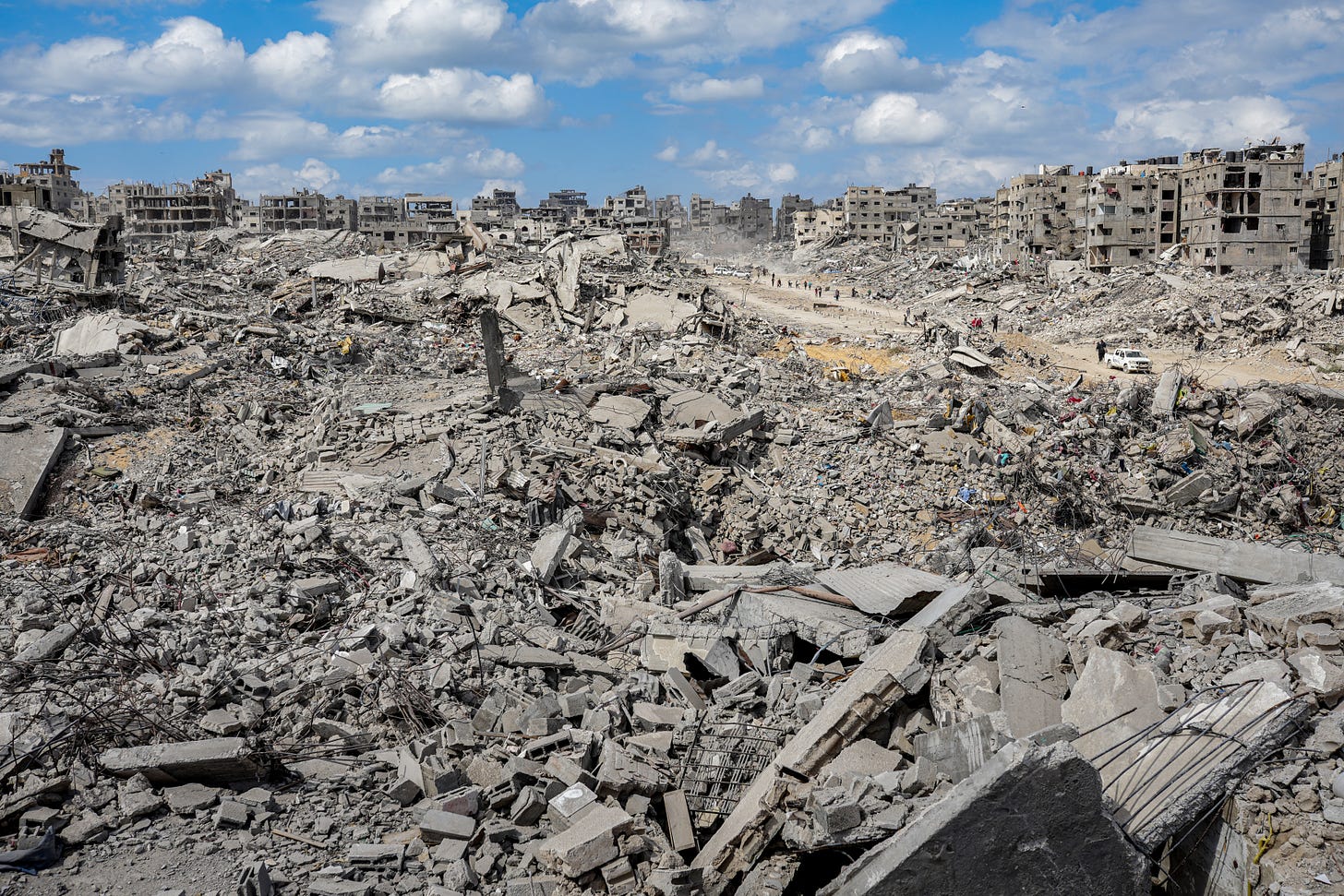
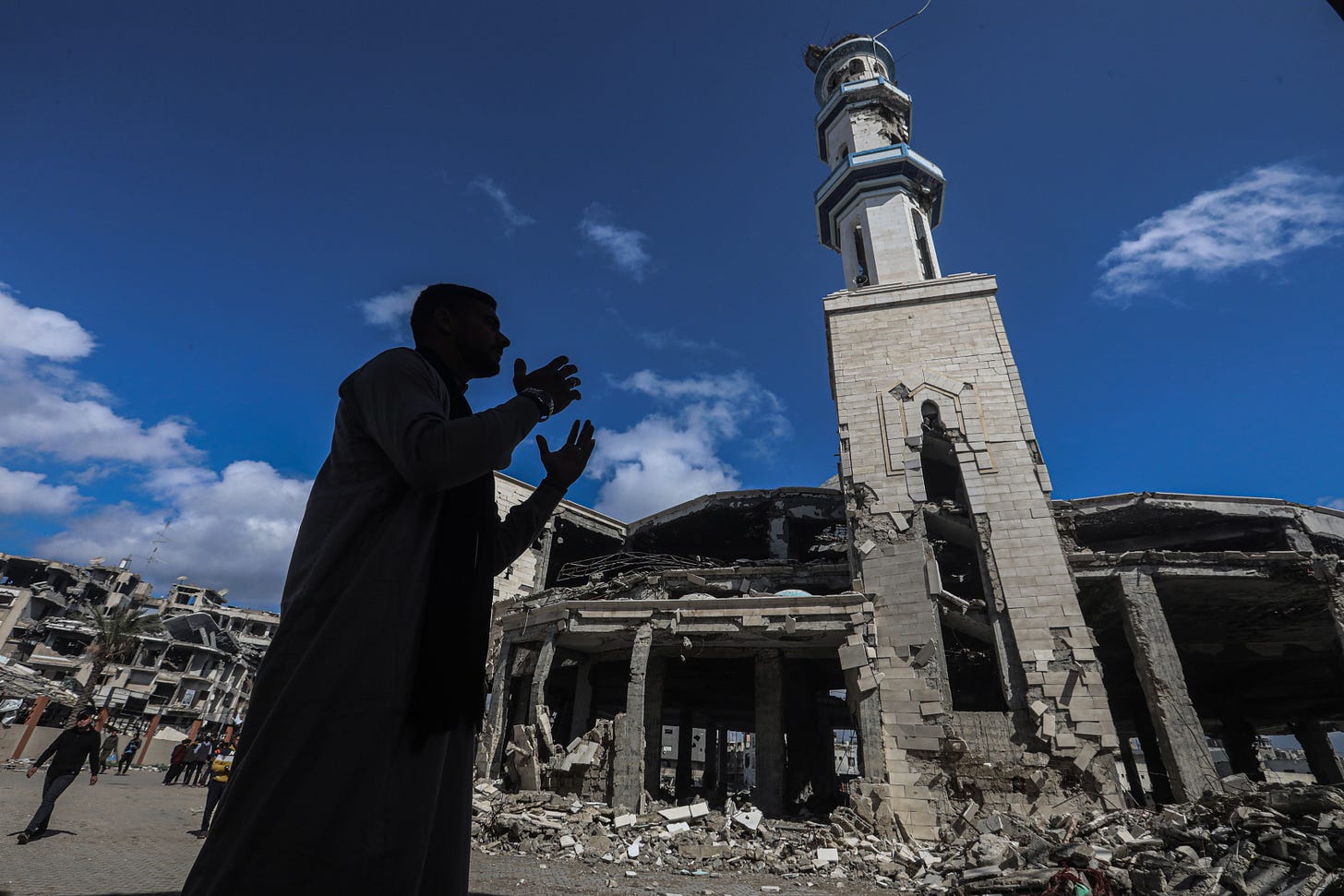
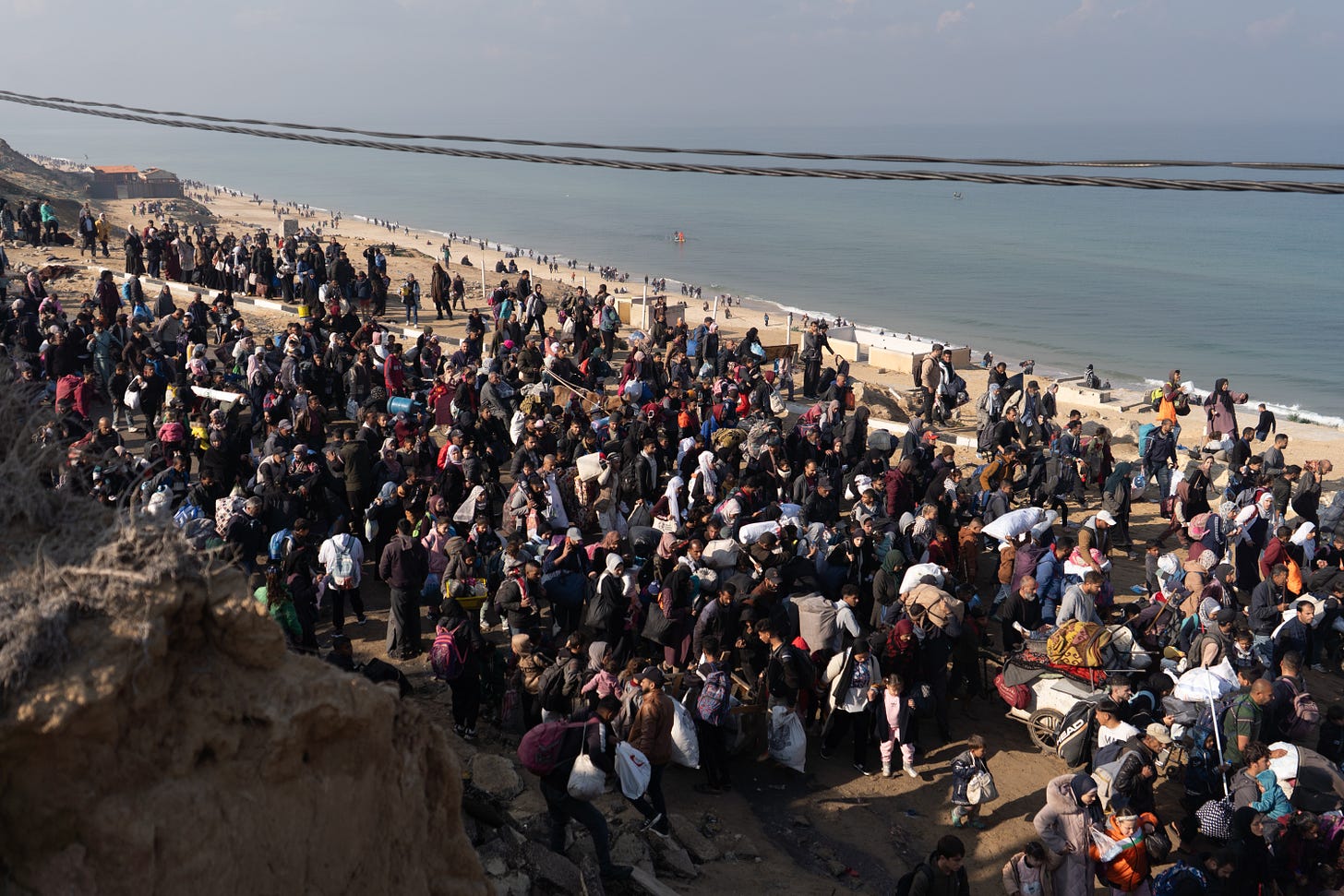
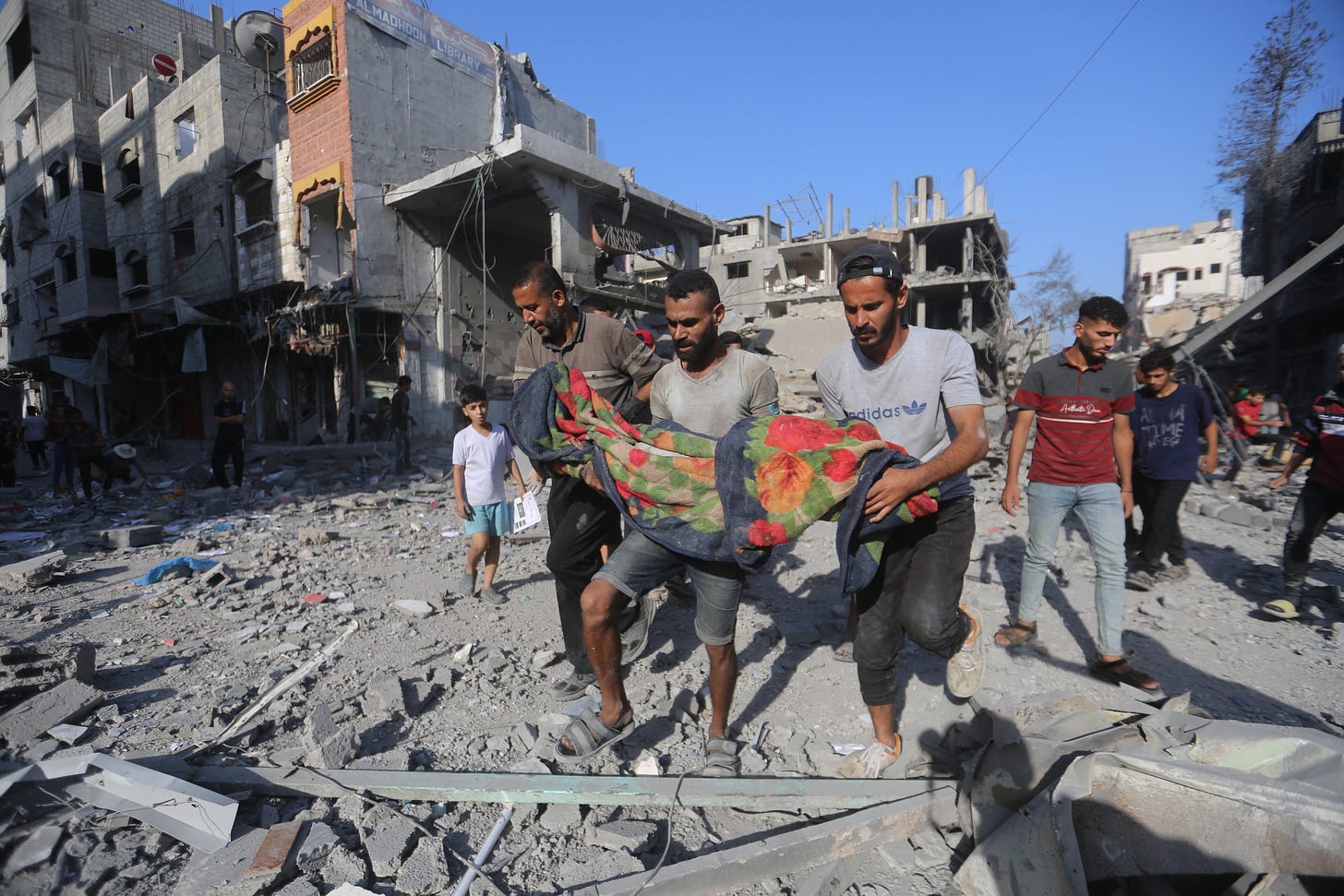
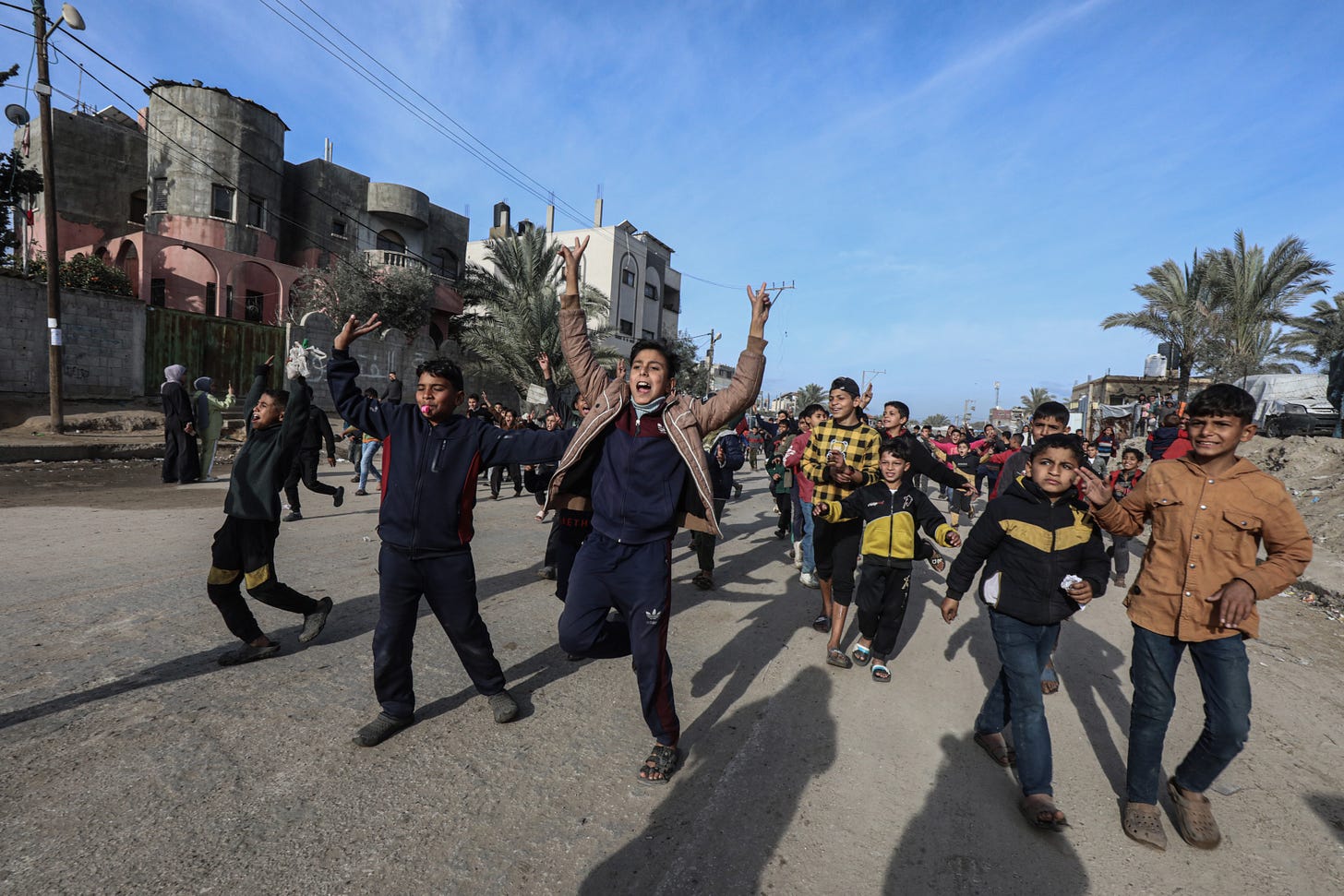

R-E-S-P-E-C-T
Another pause? They haven't paused anything. They're killing people every day, and the US sits back watching with popcorn in hand. Israel doesn't understand the words 'ceasefire' or 'pause' unless they're the ones on the receiving end, like when Iran gave them a thoroughly deserved hiding. It's evident they have no intentions of stopping anything, so unless Iran gives them another round of FAFO, then expect more carnage.